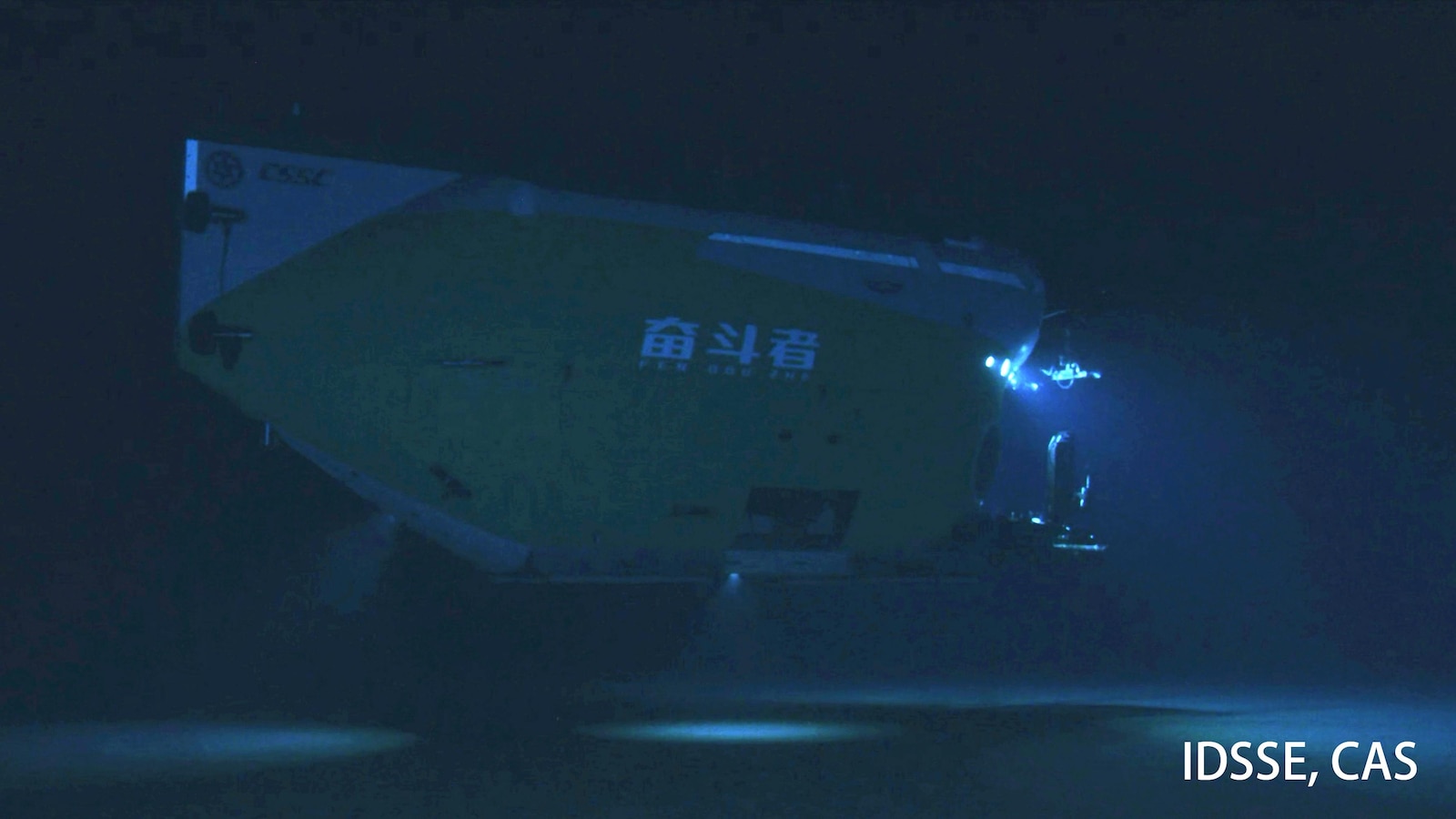T4K3.news
Scientists reveal shocking deep sea findings
Pacific sleeper sharks exhibit unique feeding behavior during cow carcass experiment in South China Sea.

Scientists discover unexpected marine life during a deep sea experiment in the South China Sea.
Surprising visitors revealed in deep sea experiment
In an experiment in the South China Sea, researchers dropped a cow carcass into the depths to study marine life interactions. To their surprise, Pacific sleeper sharks, previously unrecorded in this area, appeared and exhibited an interesting feeding behavior resembling queuing. The study highlighted the sharks' aggressive nature towards the carcass, particularly among larger individuals, while also noting their adaptation of retracting eyes during feeding. This research provides new insights into the life of these elusive sharks and their feeding strategies.
Key Takeaways
"This behavior suggests that feeding priority is determined by individual competitive intensity."
Researcher Han Tian describes the sharks' competitive feeding habits.
"Our understanding of this population remains significantly limited."
Han Tian points out the need for further research into Pacific sleeper sharks.
This study opens up fascinating discussions about the rich and largely unexplored ecosystems of our oceans. The presence of the Pacific sleeper sharks in this region not only surprises researchers but may also indicate significant changes in marine biodiversity. Such findings urge the scientific community to explore deeper and map more of our oceans as we continue to uncover the mysteries lurking in the depths.
Highlights
- The deep sea continues to surprise us with its hidden wonders.
- Unexpected visitors remind us of the ocean's mysteries.
- These sharks change our understanding of feeding strategies in deep waters.
- Each dive into the ocean reveals something new.
Research findings may cause public concern
The discovery of new shark behavior raises awareness about marine biodiversity and the need for conservation efforts. Understanding such ecosystems could bring public attention to the protection of marine life, which is often overlooked.
Continued exploration of the ocean is essential for understanding its hidden wonders.
Enjoyed this? Let your friends know!
Related News

Scientists find living eggs in active underwater volcano

Significant marine life discovered at extreme ocean depths

27 million tons of nanoplastics found in North Atlantic

Discovery in Grand Canyon challenges views on life's origins

Study reveals coelacanth's misunderstood anatomy

Ancient fossils discovered in Indonesian Sea

New Antarctic canyon study impacts climate predictions

New Gravity Anomaly Discovered Beneath Indian Ocean
